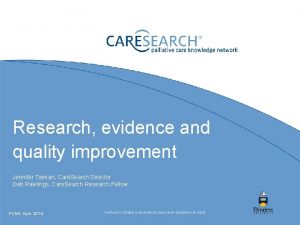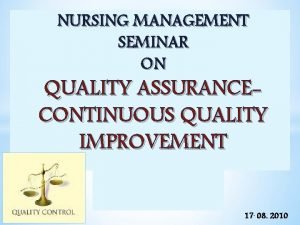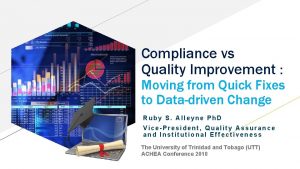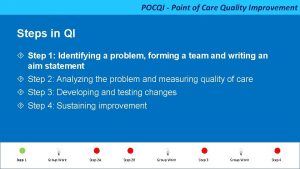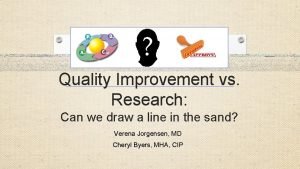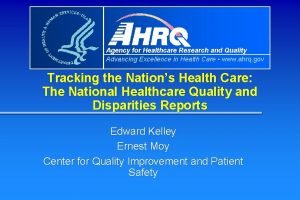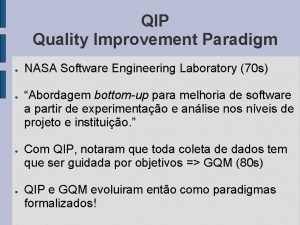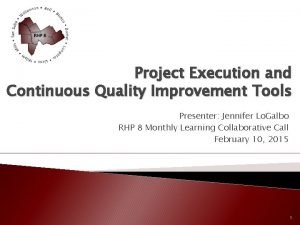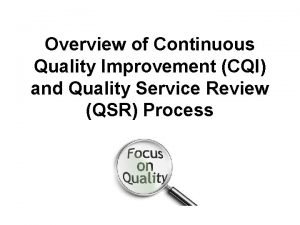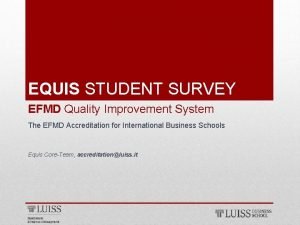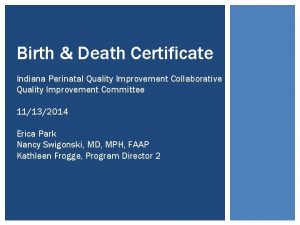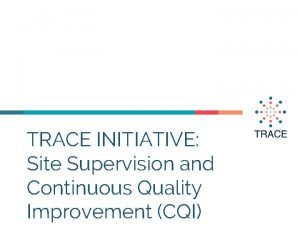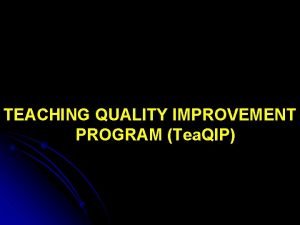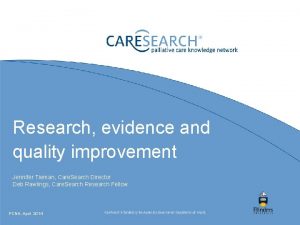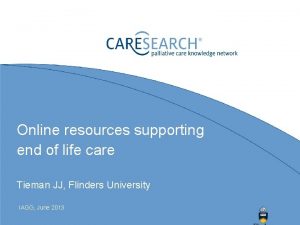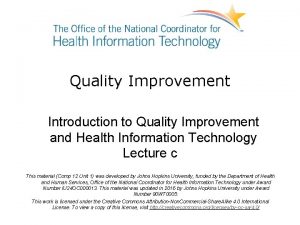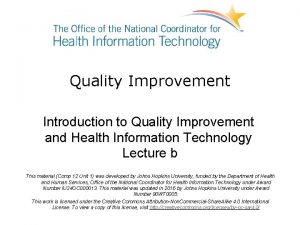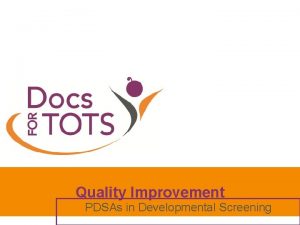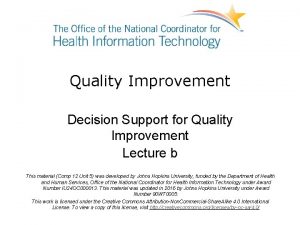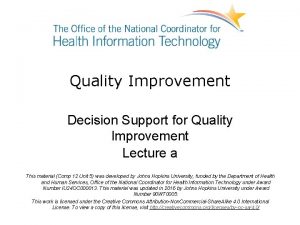Research evidence and quality improvement Jennifer Tieman Care















- Slides: 15

Research, evidence and quality improvement Jennifer Tieman, Care. Search Director Deb Rawlings, Care. Search Research Fellow PCNA, April 2014

Overview • • • Why does this matter Differences and synergies Care. Search approaches and strategies Care. Search evaluation studies Implications

Why this matters “Between the healthcare we have and the care we could have lies not a gap but a chasm”. Institute of Medicine, Crossing the Quality Chasm, 2001

Comparison of EBP, QI and Research QI EBP Research Definition Evaluate effectiveness of current process and improve care processes locally Integration of research evidence into clinical decision Formal, systematic inquiry to generate knowledge Purposes Bring about improvement in this setting Compare to standards or benchmarks Translate research into practice Increase effectiveness of treatment Answer a research question Generate new knowledge Methods PDSA PICO/PICOT Scientific methods Adapted from North Dakota Centre for Nursing Comparison of Evidence based Practice, Quality Improvement and Nursing Research, December 2013

Independent or complementary? Clinical decisions Process and system change Do things right (QI) Good patient care Do right things right (EBP & QI) Do right things (EBP) Adapted from Glasziou, Ogrinc & Goodman 2011 Can evidence based medicine and clinical quality improvement learn from each other? BMJ Qual Saf 20: 113 -117

Nurses’ roles • Nursing practice – Expectations as to knowledge and competency in QI, EBP and research • Specific roles – QI activities (eg NSAP, PCOC) – Research studies (eg Pa. CCSC) – EBP (eg journal clubs)


Care. Search Strategies • Making evidence accessible – Pub. Med Searches – Clinical Evidence • Encouraging evidence use – Nurses Hub (and Nurses Hub News) – My Learning • Partnerships in QI – WTCF – Information on QI • Supporting research – RDMS – Research Resources

Evaluation Studies • • RDMS Nurses Hub Search Filters WTCF

Nurses Hub • Nurses Hub – Evidence and resources contextualised for, and specific to, nurses – All settings of care • Study Methodology – Online survey (n=233) – Stakeholder interviews (n=10) • Key Findings – ¾ of respondents had used information found on Hub – 30% said information had assisted them in making changes in their practice – Issues reported relating to access to technology and time for EBP and literature

RDMS • RDMS – Online data collection system – Facilitates multisite research • Study Methodology – User survey (n=44) – Stakeholder interviews (n=10) • Key Findings – Cost savings provided by a common resource – Research value of ability to have multiple site data entry – Helps to focus and professionalise research

Search Filters • Pub. Med Topic Searches – Brokered access to literature – Facilitate evidence use • Study Methodology – Online survey (n=82) • Key Findings – 1/3 look for information daily – 95% indicated that Pub. Med searches found information they hadn’t seen – Less than 1/3 felt their own personal search would have found the same information

WTCF • Partnership – NSAP, PCOC, Care. Search – WTCF (Structured approach to quality improvement activity that incorporates evidence) • Study Methodology – Workshop evaluation (n=81) • Key Findings – 86% felt the content was relevant to needs in QI – 70% of workshop participants felt more confident in implementing change

So What? • Nurses face increasing demands in practice and expectations around knowledge and skills in EBP, research and QI • Care. Search has developed evidence based resources and supports for those providing direct clinical care • Care. Search is working to support the processes and activities that underpin research, QI and EBP • Care. Search runs an evaluation program to assess whether these strategies and approaches are effective

Care. Search would like to thank the many people who contribute their time and expertise to the project, including members of the National Advisory Group and the Knowledge Network Management Group. Care. Search is funded by the Australian Government Department of Health. www. caresearch. com. au
 Dr jennifer tieman
Dr jennifer tieman Greg tieman
Greg tieman Quality assurance model in nursing
Quality assurance model in nursing Compliance vs quality
Compliance vs quality Point of care quality improvement
Point of care quality improvement Jhm irb
Jhm irb Agency for health care research and quality
Agency for health care research and quality Primary secondary tertiary care nursing
Primary secondary tertiary care nursing Qsen safety competencies examples
Qsen safety competencies examples Quality improvement paradigm
Quality improvement paradigm Continuous quality improvement plan example
Continuous quality improvement plan example Define continuous quality improvement
Define continuous quality improvement Efmd quality improvement system
Efmd quality improvement system Indiana perinatal quality improvement collaborative
Indiana perinatal quality improvement collaborative Continuous quality improvement program planning worksheet
Continuous quality improvement program planning worksheet Tea quality improvement
Tea quality improvement
